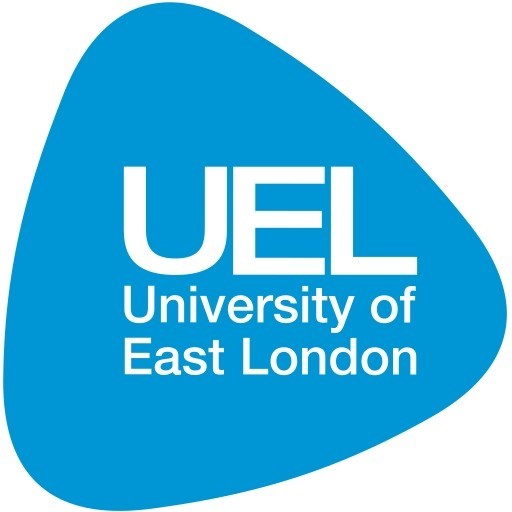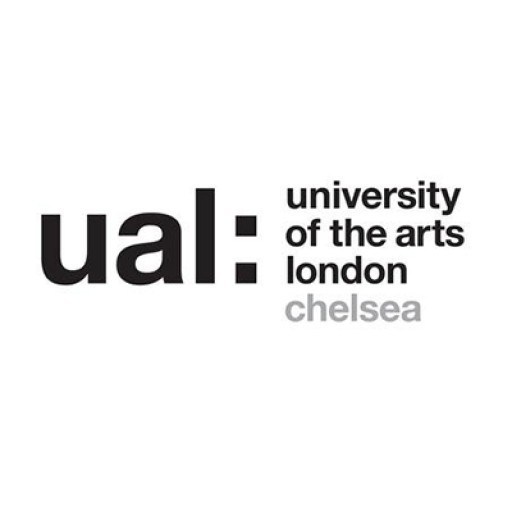Photos of university / #uniofsuffolk
The BA (Hons) Fine Art program at the University of Suffolk is designed to nurture the creativity and technical skills of emerging artists, providing a comprehensive foundation for a career in the visual arts. This degree offers students the opportunity to explore a wide range of artistic practices, including painting, sculpture, installation, printmaking, and digital media, encouraging experimentation and innovation. Throughout the course, students engage with both traditional and contemporary art techniques, fostering critical thinking and self-reflection essential for developing a unique artistic voice. The program emphasizes the importance of research, contextual understanding, and the development of a personal practice, preparing graduates for diverse careers within the arts sector or further postgraduate study. Students benefit from dedicated studio spaces, access to specialist workshops and technical support, and opportunities to exhibit their work locally, nationally, and internationally. The curriculum incorporates collaborative projects, artist talks, and industry engagement, providing valuable insights into the professional world of art. Additionally, students are encouraged to develop their entrepreneurial skills, understanding how to promote and manage their work in a competitive marketplace. The academic team comprises practicing artists and experts who offer mentorship and guidance tailored to individual ambitions. The program’s flexible structure allows students to tailor their learning experience, integrating theoretical coursework with practical studio projects. On graduation, students will have built an extensive portfolio showcasing their development and versatility as artists. The BA (Hons) Fine Art degree at the University of Suffolk prepares graduates not only for creative careers but also positions them as proactive, innovative contributors to the contemporary art scene. This course is ideal for passionate individuals eager to push artistic boundaries and make meaningful contributions to culture and society.
Detailed Course Facts
Application deadline UK or any other EU country - 15 January ; International - 30 June Tuition fee
- EUR 9240 Year (EEA)
- EUR 10360 Year (Non-EEA)
Students starting at UCS in September 2013 will be charged £8,000 for a full-time Bachelor degree.
Tuition fees for full-time undergraduate overseas fee payers for the academic year 2013-2014 are:
- Classroom-based 9,000 GBP (£)
- Laboratory-based 10,500* GBP (£)
Start date September 2015 Credits (ECTS) 180 ECTS
Duration full-time 36 months Languages Take an IELTS test
- English
Delivery mode On Campus Educational variant Part-time, Full-time Intensity Flexible
Course Content
The first year (level 4) provides students with a grounding in studio practice across a range of fine art media including painting, printmaking, sculpture, installation and lens-based media. This work is underpinned by a drawing module that develops students' skills and techniques through close observation of figure, object and site-specific subjects. Students are introduced to a range of art historical ideas and works, and their writing and analytical skills are developed through short text-based assignments.
In the second year (level 5) students' own research and professional skills are extended through studio work and professional projects such as placements, commissions, exhibitions and collaborations. Students liaise with a range of external partners including DanceEast , Commissions East, Suffolk County Council, Stow Health and Salthouse Hotel. The Level 5 selected group exhibition in January each year at the Waterfront Gallery is an opportunity to learn about exhibition practice including exhibition design, curation , marketing and reviewing work in a public gallery setting. Contemporary art and ideas are explored through critical discussion, presentation and essays.
In the final year (level 6) students work towards creating a significant body of work for their final degree show. Their conceptual and critical ideas are challenged through one-to-one and group discussion. Their knowledge of theory is extended through primary source research into contemporary practice for their final dissertation and critical review. By the end of their final year, students have developed their own personal visual language. They can articulate their creative ideas through visual, written and verbal communication. They are well placed to begin professional life, to continue their studies at post-graduate level as creative practitioners, or to apply their lateral thinking, creative and analytical skills to other professional areas.
English Language Requirements
IELTS band : 6 TOEFL iBT® test : 87
To study at this university, you have to speak English. We advice you to
take an IELTS test. More About IELTS
Requirements
All students are expected to be able to understand and express themselves fully in English in order to succeed on the course. Applicants whose first language is not English are welcome to apply but expected to undertake one of the Secure English Language Test (SELT) specified by the UKBA before joining the course. Non-EU applicants are required to submit SELT scores before a Confirmation of Acceptance for Studies (CAS) can be issued. Depending on your choice of course you are required to secure a minimum of CEFR B2 or C1 level.
Typically the following test scores are acceptable:
Undergraduate Courses:
- IELTS (academic): 6.0 overall (minimum 5.5 in all components)
- TOEFL: IBT (Internet Based Test) 87 overall
(a minimum of 17 in listening 17 in writing; 18 in reading; and 20 in the speaking component) or equivalent Computer based/Paper based test - Pearson PTE: 51 overall
- Diagnostic Radiography, Radiotherapy and Oncology, ODP and all Pre-Registration Nursing and Midwifery courses require IELTS 7.0 overall or CEFR C1 equivalent (minimum 5.5 in all components)
- Cambridge ESOL at CEFR B2 level
Typical Offer:
280 UCAS tariff points (or equivalent)
Applicants will be expected to attend an interview and show a portfolio as part of the application process.
Work Experience
No work experience is required.
Related Scholarships*
- Academic Excellence Scholarship
"The Academic Excellence Scholarship can provide up to a 50 % reduction in tuition per semester. These scholarships will be renewed if the student maintains superior academic performance during each semester of their 3-year Bachelor programme. The scholarship will be directly applied to the student’s tuition fees."
- Access Bursary
Bursary for UK students all subjects where the variable tuition fee rate is payable.
- Alumni Bursary
Alumni Bursary for UK Undergraduate students
* The scholarships shown on this page are suggestions first and foremost. They could be offered by other organisations than University Campus Suffolk.
Funding
UCS Financial Support
UCS Bursary 2013 Entry
From September 2013, UCS is introducing a new bursary scheme for students living away from the parental home, to help with accommodation costs while studying.
Successful applicants will receive a £1,000 bursary in their first year of study and a £500 bursary in both their second and third years of study.
National Scholarship Programme
The National Scholarship Programme (NSP) has been created to offer support to students from lower income backgrounds. The Government has awarded a number of Scholarships to UCS for students starting an undergraduate degree in September 2013. UCS has committed to matching these Scholarships, providing fee waivers to a larger number of students.
Successful full-time applicants will receive a total fee waiver of £6,000; £3,000 in their first year of study and £3,000 in their second year of study.
Successful part-time applicants will receive a fee waiver on a pro rata basis for their first and second years of study. For example part-time students studying 50% of the full time equivalent course in their first year will receive a fee waiver of £1,500.
Suffolk Access Champion Scheme
The Suffolk Access Champion Scheme is open to students who have studied in Suffolk and are applying to study a full-time undergraduate degree programme at UCS in 2013/14.
Successful applicants will become Suffolk Access Champions and will work over two years mentoring Year 10 and 11 students to encourage progression on to higher education.
In return for their participation in the scheme, Access Champions will receive a total fee waiver of £8,000; £5,000 in their first year of study and £3,000 in their second year of study.
UCS Science Fee Waiver
UCS is introducing a new Science fee waiver for students starting one of the four year science programmes in 2013. This scheme entitles successful applicants to a fee waiver of up to £1,500 across years two and three of their degree.
Ipswich Borough Council and UCS Bursary
Ipswich Borough Council (IBC) is working in conjunction with UCS to offer a non-repayable bursary scheme to selected full and part-time students from lower income backgrounds to help with costs associated with their course of study.
A total of four IBC and UCS bursaries are available in 2013/14. Successful applicants will receive £1,000 in their first year of study. Awards are expected to continue into Year 2 of study on the condition that household income remains within the scheme threshold
The Bachelor of Arts in Fine Art at the University of Suffolk offers students a comprehensive platform to develop their artistic skills, critical thinking, and professional practice within a supportive academic environment. The program is designed to nurture creativity and innovation, enabling graduates to explore various mediums such as painting, sculpture, installation, and digital art. Throughout their studies, students engage with a diverse range of contemporary and historical art practices, fostering a deep understanding of artistic contexts and theories. The curriculum includes studio practice, theoretical modules, and opportunities for collaborative projects, exhibitions, and placements, allowing students to gain practical experience and prepare for careers in the arts sector. The program emphasizes the development of individual artistic identity, encouraging experimentation and exploration while providing mentorship and guidance from experienced faculty members. Students have access to excellent facilities, including dedicated studios, workshops, and digital labs, ensuring they can experiment with different techniques and materials. The university also collaborates with local galleries, art organizations, and external professionals to provide networking opportunities, residencies, and exhibitions that enhance the students' professional portfolios. Graduates of the Fine Art program can pursue careers as professional artists, curators, educators, or continue their studies at postgraduate levels. The program aims to equip students with the skills, knowledge, and confidence to contribute to the cultural sector and engage with contemporary artistic discourses. Overall, the Bachelor of Arts in Fine Art at the University of Suffolk offers a dynamic and immersive educational experience for aspiring artists seeking to develop their practice and make meaningful contributions to the art world.










